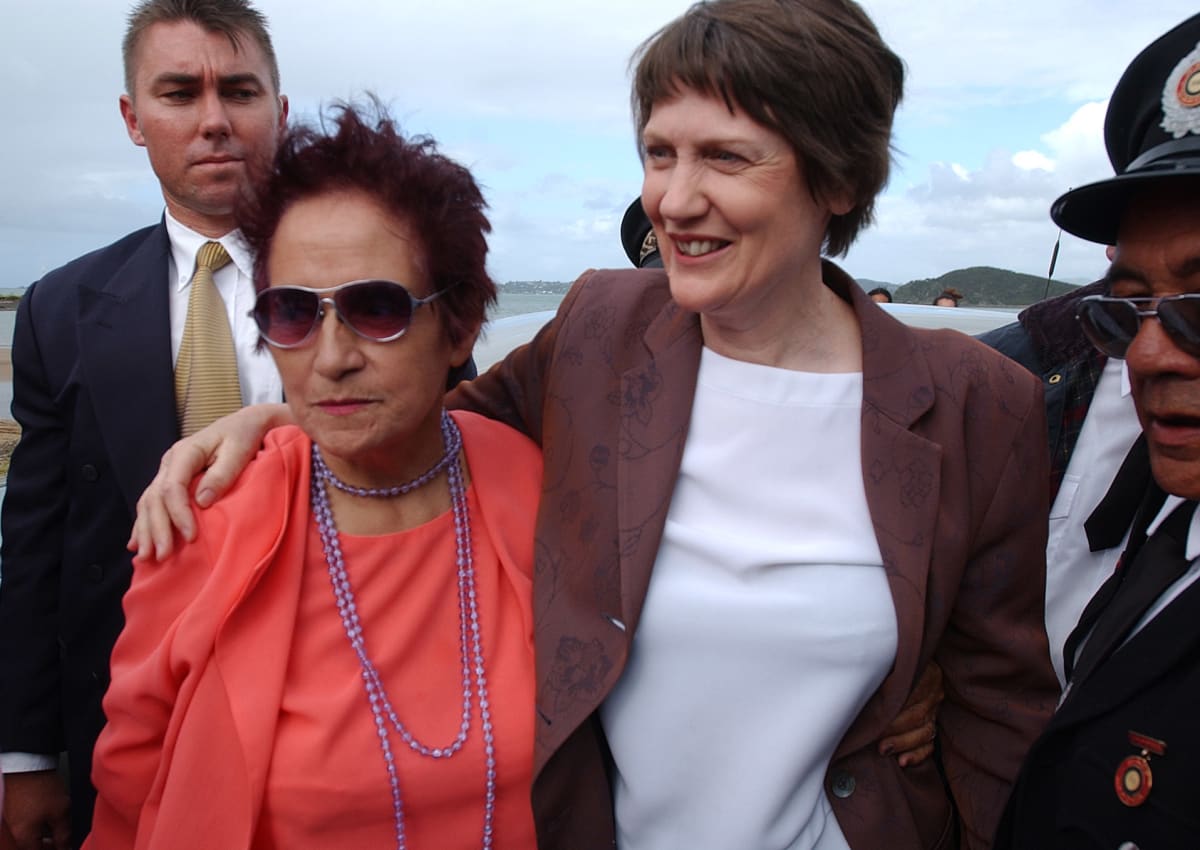
Waitangi organisers are trying to push political leaders to the side at Sunday's pōwhiri, but Labour's deputy leader says it's not for them to decide who speaks.
Te Tai Tokerau MP and Labour deputy leader, Kelvin Davis, says the Prime Minister will speak at Sunday’s pōwhiri at Waitangi, in defiance of local organisers who requested party leaders save their speeches for later in the day.
Which political leaders can and can’t speak during the pōwhiri that takes place ahead of Waitangi Day has been vexed over the years. The political talks were no stranger to protest or challenges to speaking rights when they were held at the controversial Te Tii Marae, and since moving up to the more neutral upper marae some of the same issues have continued for the commemorations.
READ MORE: * Hipkins heads north to woo at Waitangi * Hipkins picks his team, turns to policy purge
Tikanga doesn’t allow women to speak from the paepae during the pōwhiri, and it’s only been since proceedings moved in 2018 to the upper marae that an exception was first made for former Prime Minister Jacinda Ardern to give an address from the mahau (porch).
In 2021 when Judith Collins was leader of the National Party a challenge was laid down to local iwi, Ngāpuhi, to allow all female political leaders the right to speak the following year.
Waitangi organisers met with Davis on January 16, just three days before Ardern announced she was stepping down as Prime Minister, to outline changes to the tikanga for this year’s pōwhiri in an attempt to take the politics out of it and return the focus to the Treaty of Waitangi.
The Waitangi National Trust told Davis political leaders, including the prime minister, wouldn’t have a speaking slot - instead, they would be invited to a separate moderated political panel later in the day, away from the main event.
“In a pōwhiri, people don’t get to say who is speaking and direct the traffic." - Labour's deputy leader Kelvin Davis
During the formal pōwhiri the Trust asked that up to five MPs from any of the visiting political parties spoke in place of the leaders.
That change was confirmed in a letter to Davis from the Trust in late January, by which point Chris Hipkins had been sworn-in as Prime Minister.
Speaking to Newsroom on Friday, Davis said manuhiri (visitors to the marae) had the right to choose who spoke on their behalf and it wasn’t for local iwi or Waitangi organisers to dictate otherwise.
“In a pōwhiri, people don’t get to say who is speaking and direct the traffic. It’s over to manuhiri to put up who they want to speak – that’s tikanga the country over, so that’s what we’re doing, and the PM will get the chance to say a few things as planned before heading off for a kai,” Davis said.
Asked whether politicians would simply ignore the request of the Trust, Davis said, “we’re manuhiri, and we’ll determine who speaks for us”.
Political leaders have walked away from the north altogether when gagging orders have been enforced in the past.
The 1998 images of then-Opposition leader Helen Clark reduced to tears at Te Tii marae, after being challenged by Ngāpuhi stalwart, the late Titewhai Harawira, were a result of her being told she couldn’t speak because tikanga didn’t even allow Māori women that right.
Clark became Prime Minister the following year and it was 2002 before she returned to Waitangi, where she again didn’t speak and chose not to have a male speak for her. Harawira escorted her onto Te Tii as a show of unity and that the relationship was being mended.

In 2016 the debate over whether prime ministers could speak during the pōwhiri and political talks on the eve of Waitangi Day led to then-Prime Minister John Key also calling time on Waitangi.
After being refused speaking rights and threats of protest Key made the decision to commemorate the country’s national day elsewhere and in 2017 his successor, Bill English, kept up that tradition after he was also led to believe he wouldn’t be able to speak at the pōwhiri.
"The marae committee has decided that the prime minister can't speak on their marae, and that as far as I'm concerned is not respectful of the role,” English told media just one month out from Waitangi Day.
English didn’t attend as opposition leader in 2018 either and it was 2019 before National’s leader returned when Simon Bridges joined Prime Minister Jacinda Ardern at a joint pōwhiri at the Upper Treaty grounds.
The venue change came after the political day was taken off Te Tii Marae a year earlier due to ongoing protests and tensions – ever since all political parties have taken part in one united pōwhiri, but speaking rights have continued to cause some problems.
It was expected to be a deal breaker for National’s continued attendance at Waitangi if Collins wasn’t afforded the right to speak in the future after the issue was raised with Ngāpuhi in 2021.
That problem disappeared when Christopher Luxon took over the leadership later that year, and in the end a ramp-up of Covid in the community meant the events in the North were cancelled in 2022 anyway.
The last-minute changes to tikanga at Waitangi this year haven’t come as a great surprise to MPs who have come accustomed to Ngāpuhi and the organisers flexing their muscles from time to time over the years.
Newsroom understands this year’s dispute is unlikely to impact Labour’s annual pilgrimage to Waitangi in the future.
A commitment was made to return each year under former leaders Andrew Little and Jacinda Ardern, and any disagreements over speaking rights don’t look set to change that.
The Trust's chair did not respond to requests for comment.







